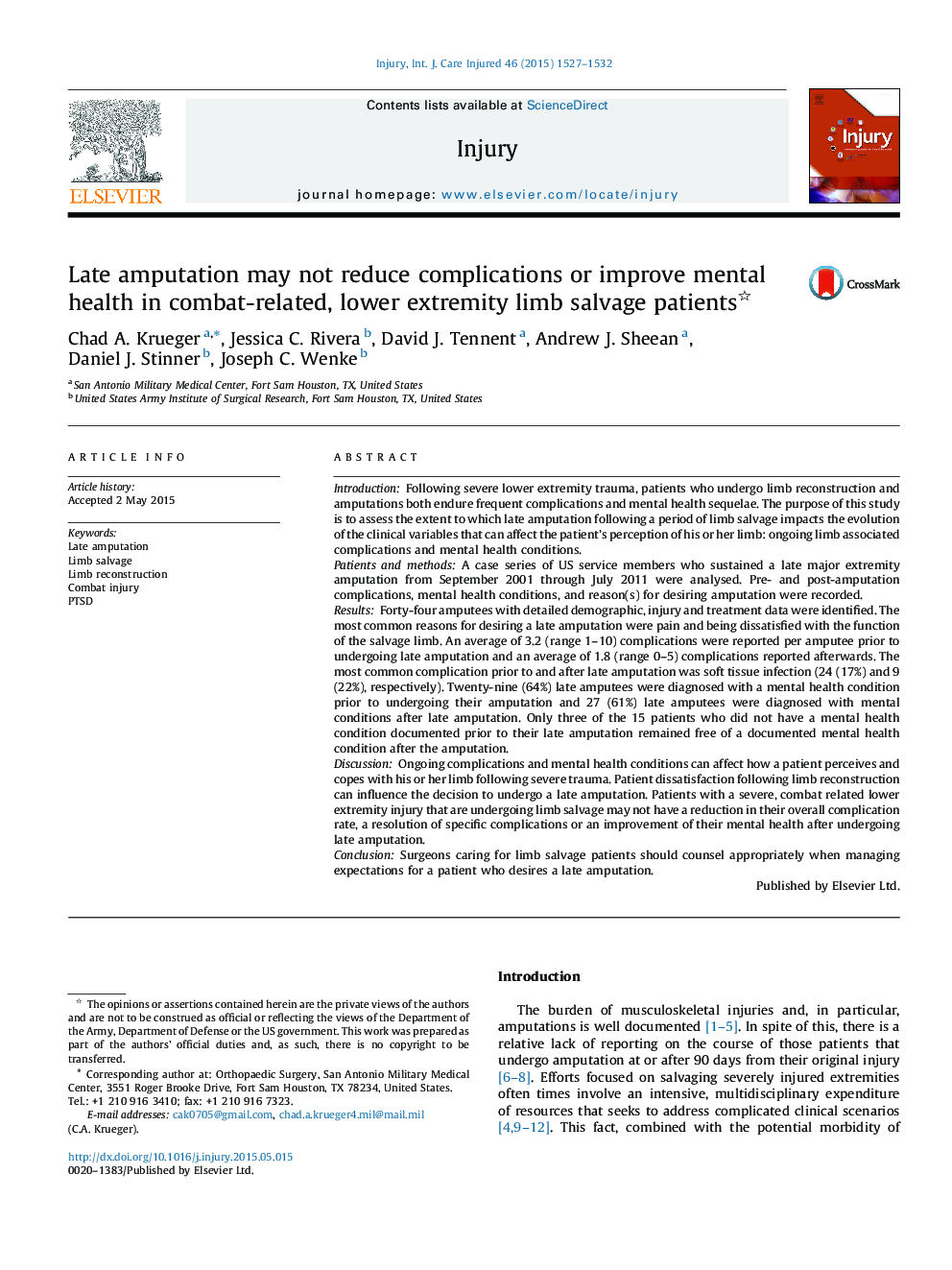| کد مقاله | کد نشریه | سال انتشار | مقاله انگلیسی | نسخه تمام متن |
|---|---|---|---|---|
| 3238892 | 1205976 | 2015 | 6 صفحه PDF | دانلود رایگان |
IntroductionFollowing severe lower extremity trauma, patients who undergo limb reconstruction and amputations both endure frequent complications and mental health sequelae. The purpose of this study is to assess the extent to which late amputation following a period of limb salvage impacts the evolution of the clinical variables that can affect the patient's perception of his or her limb: ongoing limb associated complications and mental health conditions.Patients and methodsA case series of US service members who sustained a late major extremity amputation from September 2001 through July 2011 were analysed. Pre- and post-amputation complications, mental health conditions, and reason(s) for desiring amputation were recorded.ResultsForty-four amputees with detailed demographic, injury and treatment data were identified. The most common reasons for desiring a late amputation were pain and being dissatisfied with the function of the salvage limb. An average of 3.2 (range 1–10) complications were reported per amputee prior to undergoing late amputation and an average of 1.8 (range 0–5) complications reported afterwards. The most common complication prior to and after late amputation was soft tissue infection (24 (17%) and 9 (22%), respectively). Twenty-nine (64%) late amputees were diagnosed with a mental health condition prior to undergoing their amputation and 27 (61%) late amputees were diagnosed with mental conditions after late amputation. Only three of the 15 patients who did not have a mental health condition documented prior to their late amputation remained free of a documented mental health condition after the amputation.DiscussionOngoing complications and mental health conditions can affect how a patient perceives and copes with his or her limb following severe trauma. Patient dissatisfaction following limb reconstruction can influence the decision to undergo a late amputation. Patients with a severe, combat related lower extremity injury that are undergoing limb salvage may not have a reduction in their overall complication rate, a resolution of specific complications or an improvement of their mental health after undergoing late amputation.ConclusionSurgeons caring for limb salvage patients should counsel appropriately when managing expectations for a patient who desires a late amputation.
Journal: Injury - Volume 46, Issue 8, August 2015, Pages 1527–1532
